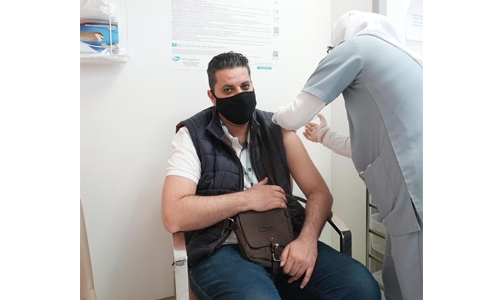Commitment to precautionary measures is a ‘national duty’
TDT | Manama
The Daily Tribune – www.newsofbahrain.com
People still need to follow public precautionary measures and health guidelines to keep everyone and the community safe and prevent the spread of the coronavirus (COVID-19).
Wear face masks, observe social distancing, limit family gatherings, avoid large crowds, wash hands regularly, and maintain personal hygiene.
Additional steps we should also take to stay safe include washing hands regularly, covering mouth and nose when coughing and sneezing, and avoid touching our face.
After all, this commitment to the precautionary measures is a national duty.
Health experts in the Kingdom of Bahrain and around the world are reminding everybody that even if a COVID-19 vaccine is already available to the public, it’s not going to be a light switch back to normalcy.
Based on what has been proved about vaccines for other diseases, the COVID-19 vaccine may help keep us from getting seriously ill, even if we do get the virus.
Getting vaccinated also may protect people around us — particularly those at greater risk for severe illness from COVID-19. However, there is still no sufficient evidence to assure that people won’t get infected even after being vaccinated.
Likewise, the period of immunity to the virus after vaccination has not been established yet.
According to health experts, the protective effect of a vaccine may take at least one month, if not slightly longer.
Therefore, for the foreseeable future, the Kingdom will really need to continue its mitigation measures.
What we are seeing so far, after being inoculated, are evidence of fewer chances of having full-blown diseases, of needing hospitalisation, and of dying.
So it is still important to continue full adherence to precautionary measures, even after getting the vaccine.
In fact, the Ministry of Health has warned that complacency will be the greatest risk to community health.
Bahrain continues to intensify mass vaccination efforts against the virus. The vaccine is now available to citizens and residents at 27 health centres across the Kingdom. A third vaccine from AstraZeneca has also been approved for emergency use and should be available soon. Vaccination requires prior appointments that can be booked online via the website: healthalert.gov.bh.
The online portal now enables those registering to select their preferred health centre and the type of vaccine they wish to receive.
The vaccination is available free of charge to all citizens and foreign residents of the age of 18 years and above.
COVID-19 vaccination services are being administered at stretches of 10 hours a day from 8 am to 6 pm, including Friday and Saturday.
Bahrain aims to vaccinate a total of 1.5 million residents, around 679,000 of them are expatriates and 712,000 Bahrainis. It aims at vaccinating 5,000 people per day, to be maximised to 10,000.
Clearly, there is still so much to learn about COVID-19. Scientific though the evidence is clear: Following the prescribed protective measures help prevent people from spreading the virus, and from being infected themselves.
Related Posts

